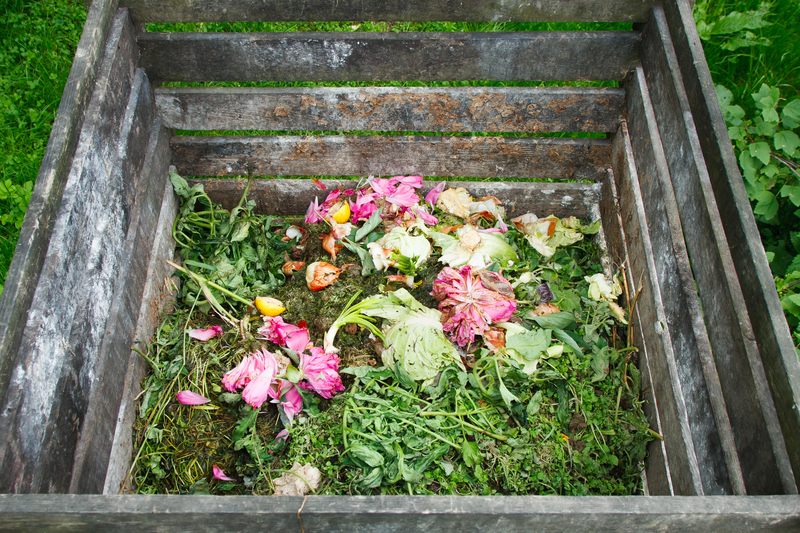London City Implements Recycling Programs to Protect Endangered Species
Posted on 02/08/2024

London City, a bustling metropolis known for its iconic landmarks such as Big Ben and Buckingham Palace, has taken a major step towards protecting the environment and preserving endangered species. The city has implemented innovative recycling programs in an effort to reduce waste and promote sustainability.
With a population of over 8 million people, London produces a staggering amount of waste every day. This waste not only pollutes the environment but also poses a threat to the survival of many species. Landfills overflow with non-biodegradable materials, and marine animals suffer from plastic pollution in the Thames River. Recognizing these pressing issues, the city has taken action to reduce its carbon footprint and promote responsible waste management.
One of the key initiatives undertaken by London City is the introduction of separate recycling bins for households and businesses. These bins are color-coded to make it easier for residents to identify what type of waste goes into each bin. Plastics, paper, glass, and organic waste are all properly sorted and processed accordingly, reducing the amount of waste sent to landfills.
In addition to recycling bins, the city also offers free composting workshops and subsidies for composting equipment. Composting is a natural process that converts organic waste into nutrient-rich soil. By composting food scraps and yard waste, London City not only reduces methane emissions from landfills but also produces natural fertilizer for community gardens and green spaces.
Furthermore, the city is working towards becoming a zero-waste community by encouraging the use of reusable items. Single-use plastic bags have been banned in shops and markets, and shoppers are encouraged to bring their own bags or purchase reusable ones. Additionally, several campaigns have been launched to reduce plastic water bottle usage in favor of refillable ones.
London City's efforts have had a significant impact on the environment, particularly on endangered species. By reducing waste and promoting sustainable practices, the city has helped protect wildlife habitats from pollution and depletion. Marine animals in the Thames River now have a cleaner and safer environment to thrive in, and land animals have a reduced risk of consuming harmful waste.
There are, however, some challenges that London City faces in implementing these programs. The constant growth of the city's population means an increase in waste generation, making it a continuous effort to keep up with recycling processes. Additionally, education and awareness about proper waste management practices need to be consistently reinforced in order for these initiatives to be successful.
Nevertheless, the benefits of these recycling programs outweigh the challenges. By properly managing waste, London City has reduced its carbon footprint and conserved natural resources. It has also set an example for other cities to follow and has inspired individuals to make sustainable choices in their daily lives.
For those looking to follow in London's footsteps, here are some tips:
1. Educate yourself on proper recycling practices: Familiarize yourself with what can and cannot be recycled in your area. This will ensure that you are not contaminating the recycling process.
2. Invest in reusable items: Replace single-use items with reusable alternatives such as water bottles, bags, and containers. This reduces the amount of waste you produce and saves money in the long run.
3. Properly dispose of hazardous materials: Items such as batteries, electronics, and chemicals should never be thrown in regular garbage bins. Contact your local recycling center or municipality for proper disposal methods.
4. Compost at home: If possible, start a compost bin at home for your food scraps and yard waste. This will not only reduce waste but also provide natural fertilizer for your garden.
In conclusion, London City's implementation of recycling programs not only helps protect endangered species but also promotes sustainability for future generations. By making small changes in our daily lives and supporting these initiatives, we can all contribute towards creating a cleaner and more sustainable world. Let us look towards London as an example and work towards becoming zero-waste communities ourselves.

Latest Posts
Impact of government regulations on sustainable practices in the manufacturing industry
Waste Not, Want Not: How Cities Across the World are Embracing Recycled Housing Solutions
Reusing and repurposing: The eco-friendly trend that's here to stay
Tips for Environmentally Friendly Furniture Disposal: From Mattresses to Couches
The environmental impact of e-waste and how small changes in disposal can make a big difference

 We charge by volume which ensures that you pay only for the space you use
We charge by volume which ensures that you pay only for the space you use The cost of your job includes the collection of waste, transportation and disposal
The cost of your job includes the collection of waste, transportation and disposal We offer a flexible service and can remove any amount of waste
We offer a flexible service and can remove any amount of waste
